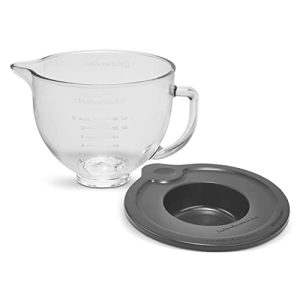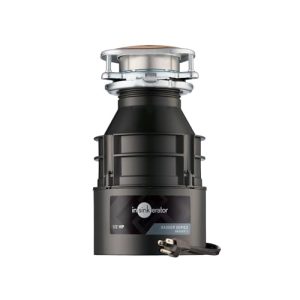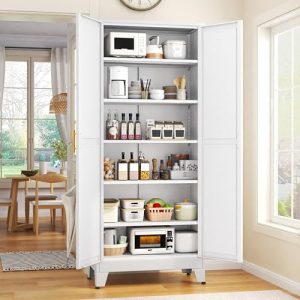Have you ever wondered if your refrigerator really needs to stay in the kitchen? You might be surprised to learn that where you place your fridge can change how you use your space—and even how you feel in your home.
Whether you’re dealing with a small kitchen, looking for convenience, or just want to rethink your layout, this question matters more than you think. Keep reading, and you’ll discover practical ideas and smart tips that could transform your daily routine and make your home work better for you.
Kitchen Placement Traditions
Kitchen placement traditions have shaped how we arrange our homes, especially when it comes to where appliances like the refrigerator belong. These traditions are not just about habit—they reflect practical needs and cultural influences that have developed over time. Understanding these can help you decide if the fridge really needs to stay in the kitchen or if it could work better somewhere else in your home.
Historical Reasons
Historically, the kitchen was the heart of the home, where food was prepared and stored. Before modern refrigeration, people used cool cellars or pantries to keep perishables safe. When refrigerators became common, placing them in the kitchen made sense because it kept everything related to food preparation in one spot.
In older homes, the kitchen was often the only place with the right plumbing and electrical setup for a refrigerator. This practical consideration reinforced the tradition. But ask yourself—does your home layout or lifestyle still require the fridge to stay in the kitchen?
Convenience Factors
Keeping the refrigerator in the kitchen offers clear convenience for cooking and meal prep. You can grab ingredients quickly without walking across the house. This saves time and keeps cooking efficient.
However, some modern homes design open floor plans or separate dining areas that challenge this idea. Placing a fridge closer to a dining or entertainment space can improve access during meals or parties. What if your fridge was right where you entertain guests? Could it make your daily routine easier or more enjoyable?
Think about your own habits. Do you spend most of your time in the kitchen or elsewhere? Sometimes, breaking tradition can better fit your lifestyle and improve how your home functions.
Alternative Locations
Choosing an alternative spot for your refrigerator can change how you use your home and manage your kitchen space. It’s not always necessary for the fridge to be in the kitchen, especially if you want to free up room or create a unique flow in your living area. Let’s look at some practical places where a fridge can fit well without compromising convenience or style.
Living Room
Placing a refrigerator in the living room can be a smart move, especially if you entertain often. Imagine having cold drinks and snacks within arm’s reach during movie nights or gatherings. A compact or stylish fridge can blend into your living room décor, making it both functional and attractive.
Think about how this setup changes your habits. You might find yourself reaching for refreshments more often, which is perfect for casual, relaxed living. However, consider the noise factor and choose a fridge model known for quiet operation.
Basement Or Pantry
Basements and pantries offer cool, less trafficked spaces that are ideal for extra refrigeration. Using these areas can free up kitchen space for cooking and dining. It’s also a great way to store bulk items or seasonal goods without cluttering your main kitchen.
Keep in mind the temperature and humidity conditions here. Too much moisture can affect your fridge’s performance. If you’ve ever stored drinks in a basement fridge, you know how convenient it is to grab a cold beverage on your way to the backyard or garage.
Garage
The garage might seem like an unusual choice, but it can be perfect for a second fridge or freezer. It’s especially handy for families who buy in bulk or like to keep extra frozen foods. Just ensure the fridge is designed to handle wider temperature ranges, as garages can get very hot or cold.
Have you noticed how much space a large fridge can take in a kitchen? Moving it to the garage can declutter your cooking area and keep your kitchen feeling open. Plus, it’s a convenient spot when coming back from grocery shopping.
Pros And Cons Of Different Spots
Choosing the right spot for your refrigerator can be challenging. Each location comes with its own advantages and disadvantages. Understanding these can help you decide the best spot for your fridge. Let’s explore the pros and cons of different spots.
Accessibility
Placing the refrigerator in the kitchen makes it easily accessible. It simplifies meal preparation and cooking. Quick access to ingredients saves time. Yet, space constraints might make this difficult. A nearby pantry or dining area can be an alternative. These options keep the fridge close, ensuring convenience.
Energy Efficiency
Location affects how much energy a fridge uses. Keep it away from heat sources. These include ovens and direct sunlight. Cooler spots help the fridge work less. This reduces energy bills. Basements or utility rooms often have stable temperatures. They can be good options for energy savings.
Space Optimization
Space optimization can influence fridge placement. Kitchens can be crowded with appliances and furniture. Consider the layout and available space. Placing the fridge outside the kitchen might free up room. This can allow for more storage or counter space. Creative arrangements can maximize your home’s potential.
Impact On Kitchen Design
The placement of a refrigerator affects kitchen design significantly. It shapes the kitchen’s flow, style, and usability. Designers think carefully about where to put this essential appliance.
Changing the refrigerator’s location can open new design possibilities. It affects how people move through the kitchen and use the space. This impact is especially clear in modern kitchen trends and appliance setups.
Open Concept Trends
Open concept kitchens blend cooking, dining, and living areas. The refrigerator’s placement can support or disrupt this flow.
Placing the fridge outside the main kitchen zone can free up space. It helps maintain a clean, uncluttered look in the cooking area. This makes the kitchen feel bigger and more inviting.
Designers often place the refrigerator near dining or pantry areas. This arrangement enhances accessibility without crowding the kitchen workspace. It fits well with social and family activities in open spaces.
Appliance Integration
Modern kitchens focus on appliance integration for a seamless look. Built-in refrigerators blend with cabinets and countertops.
Moving the refrigerator out of the kitchen can challenge this integration. Designers must find ways to keep visual harmony across spaces.
Using matching cabinet panels or custom enclosures helps maintain style. This approach keeps the refrigerator from standing out awkwardly.
Smart appliance placement also improves kitchen workflow. It supports easy access to food and cooking zones. This balance of form and function is key in kitchen design.
Practical Considerations
Choosing the right spot for your refrigerator involves more than just space. Practical factors play a big role in deciding if the fridge should stay in the kitchen or move elsewhere. These factors affect the fridge’s performance and your daily comfort.
Electrical Outlet Availability
The fridge needs a power source close by. Make sure the spot has an electrical outlet that fits the fridge plug. Avoid using extension cords for safety reasons. Check if the outlet can handle the fridge’s power load. A dedicated outlet is best to prevent overloads and outages.
Ventilation Needs
Refrigerators release heat while running. Proper airflow around the fridge helps it work efficiently. Keep space between the fridge and walls or cabinets. Crowded places can cause overheating and higher energy use. Ventilation prevents damage and extends the fridge’s life.
Noise Concerns
Fridges make noise when cooling and defrosting. Placing it near quiet areas can cause disturbance. Think about the sound level and how it affects your comfort. A location away from bedrooms or workspaces is ideal. Noise reduction improves the home environment.
Expert Tips For Placement
Finding the right spot for your refrigerator can change how you use your kitchen and living space. The placement affects not just convenience but also the overall flow of your home. Let’s look at expert tips that help you decide where your fridge will serve you best.
Maximizing Functionality
Think about how often and in what ways you use your refrigerator daily. Placing it near your main cooking area can save you time and steps, especially when grabbing ingredients or storing leftovers.
Consider the fridge door’s swing direction. Will it open towards your prep zone or block a pathway? Adjusting the door orientation or choosing a spot with ample clearance can prevent awkward movements.
Don’t forget about power outlets and ventilation space. A spot that allows air to circulate around the fridge helps it run efficiently and lasts longer. Have you noticed your fridge working harder in cramped spaces?
Maintaining Aesthetics
Your fridge is a large appliance that can dominate a room’s look. Placing it where it complements your kitchen design rather than sticks out improves the room’s harmony.
Try blending the fridge with cabinetry or using panels that match your kitchen style. This subtle touch creates a seamless feel and makes the kitchen appear larger and tidier.
If your kitchen is open to other living areas, think about how the fridge looks from different angles. Would you prefer a sleek stainless steel finish or something that hides behind doors? Your choice can impact the entire space’s vibe.
Frequently Asked Questions
Can A Refrigerator Be Placed Outside The Kitchen?
Yes, a refrigerator can be placed outside the kitchen. Many homes put it in dining rooms or basements for convenience and space.
What Are The Benefits Of Placing A Fridge Elsewhere?
Placing a fridge elsewhere frees kitchen space and improves workflow. It can also reduce kitchen noise and make snacks more accessible.
Does Fridge Location Affect Energy Efficiency?
Fridge location affects energy use. Avoid placing it near heat sources or direct sunlight to maintain efficiency and reduce electricity bills.
Is It Safe To Keep A Fridge In Other Rooms?
It’s safe to keep a fridge in other rooms if there’s proper ventilation and a nearby power outlet to ensure optimal operation.
Conclusion
Refrigerators do not always need to be in the kitchen. Many homes place them in dining rooms, garages, or pantries. This choice depends on space, convenience, and personal style. Keeping the fridge close to food prep areas is practical. Still, other spots can work well too.
Think about your daily habits and kitchen layout first. The best place is where it fits your lifestyle and needs. Simple and smart choices make kitchen tasks easier. Your fridge’s location should help, not hinder, your routine.

Sophie Hartwell is the founder of KitchenQuik.com, where she shares kitchen tips, smart cooking hacks, and the best product picks to make everyday cooking easier and more enjoyable.




